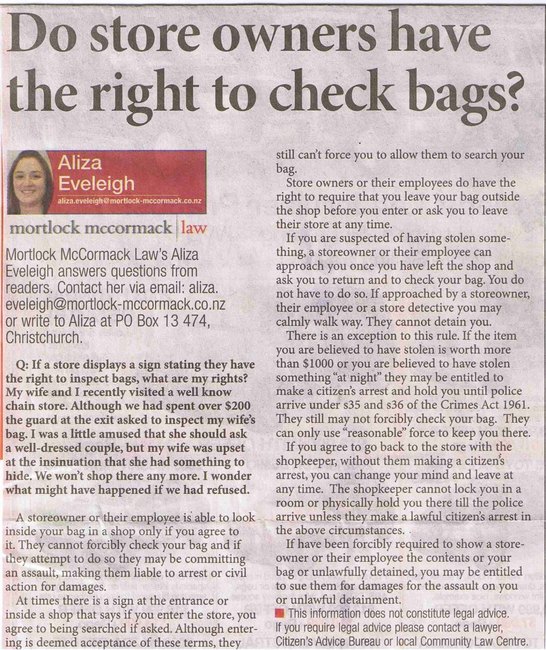
This post refers to sexual harassment and bullying. Need help? In New Zealand, you can call Lifeline on 0800 543 354, Youthline on 0800 37 66 33 or find out about other crisis services here. Rape Prevention Education has a list of sexual assault support centers on their website. The Human Rights Commission provides confidential advice and support, and you can complain about sexual harassment to them.
It’s possible the last time the legal profession was under an intense spotlight was in the 1990s due to a string of fraud cases. The most memorable involved two partners of law firm Renshaw Edwards who were both, separately and unknown to each other, stealing money from the firm’s clients. The New Zealand Law Society had a fund to reimburse theft by lawyers but not on that scale. So the Law Society intervened and raised a levy from around 2,800 principals of law firms, mainly law firm partners, of $10,000 each. This contribution reflected and reminded senior lawyers of their obligation to conduct themselves with integrity, ensure their colleagues act with integrity, and to self-regulate. Recent stories of sexual misconduct at law firms gives the impression that those lessons, and integrity in general, have been left at the law firm door.
The lessons that need to be relearned now are similar, although obviously the impact on the people involved is wildly different between fraud and sexual misconduct. Graeme Hunt, in a book about fraud in New Zealand wrote that at first there was a lack of understanding about fraud, difficulty of obtaining sufficient evidence to lead to a conviction, and that “many companies were unwilling to do more than sack offending employees”. Hunt “argued that ‘sheltered’ professions (medicine and law in particular) are less likely to identify wrongdoing among their members than those professions that have to compete fiercely in the marketplace.” NBR’s Jock Anderson similarly identified the lack of fraud prosecutions before the 1970s as due to the “closed nature of the legal profession rather than the [good] behaviour of practitioners” saying matters “were kept in-house and charges were very rarely put”. But if the lessons are the same, there’s hope. Anderson says things “changed in the 1970s. It was a more open period for investigative journalism and for people to challenge authority”.
The Law Society and sexual misconduct
The reports by Newsroom of incidents at Russell McVeagh weren’t the first time sexual harassment in law firms had been recently brought to the Law Society’s attention. In November 2017 a lawyer wrote an anonymous article for LawTalk, the New Zealand Law Society’s magazine, describing two incidents of sexual harassment she experienced as a young lawyer. The Law Society responded with a statement titled “Law Society targets sexual harassment in the workplace” but it was empty of any concrete actions being taken to target sexual harassment, and ended stating “as a profession we must also look at ourselves and agree that any harassment in our workplaces is absolutely unacceptable”.
The latest issue of LawTalk contained a number of articles about sexual harassment in the legal profession. Tim Jones, Auckland Vice-President of the New Zealand Law Society, wrote in the issue’s ‘from the Law Society’ editorial that the “Society receives very few complaints of harassment in the workplace”. Notably missing from the list of conduct the New Zealand Lawyers & Conveyancers Disciplinary Tribunal has typically found to be misconduct is “discrimination, sexual harassment and assault”.
The issue of LawTalk also notably publicly names John Revans Eichelbaum for “failing to treat another lawyer [opposing counsel] with courtesy and respect” by, among other things, asking her to bend over. Former lawyer Olivia Wensley told the NZ Herald that she has knowledge of the complaint and the report published by the Law Society had been “sanitised”.
Sexual misconduct in law firms
Recent media and online reports have confirmed that serious sexual harassment (including harassment involving physical contact), bullying of employees and colleagues, and alcohol abuse is occurring in law firms across the country and remains underreported. This should be the subject of deep reflection and action by all law firms.
In many cases the law firm partners became aware of the conduct, but failed to protect their employees. There’s a hesitation to report misconduct of fellow business partners to the Law Society, in spite of their legal and ethical obligations as lawyers to do so. When faced with the prospect of protecting a partner who might be earning the firm $1 million of fees annually and protecting a solicitor who might be earning the firm $200,000 of fees annually the partner is often shielded from meaningful consequences for their actions. Sometimes human resources staff are aware of the conduct, but they are conflicted working for the partnership and managing a partner’s misconduct. Often there is a severe gender imbalance in these partnerships.
There is sometimes crossover between law firms this type of conduct occurs in and firms nominated for “Employer of Choice” awards, which raises the question of what policies and procedures should be in place and what culture should exist for a law firm to be nominated as a “good employer”.
Partners that eventually leave firms because of this sort of conduct often go on to work at other firms, perhaps due to inadequate reference information being sought or provided, or as independent barristers in New Zealand.
What’s the price of silence?
Complainants who leave the firm and pursue a claim under employment or human rights law often have their claims settled, with settlement amounts ranging from $25,000 to $100,000, including costs. Those agreements are generally subject to strict confidentiality clauses that largely protect the law firm and person or people accused of sexual misconduct, even explicitly prohibiting contact with the media and including prewritten media statements to give if the former employee is approached for comment.
The Law Society’s (lack of) response
Last Wednesday I emailed the Law Society several written questions about their approach to sexual and other harassment. They have not responded to those questions, although they had previously instructed a lawyer to send me a warning letter.
Those questions, in an edited form, are listed below.
Questions for the Law Society
Law Society training on sexual misconduct and bullying
1. Have the staff/tribunal/committee members involved in considering sexual misconduct complaints received any special training? If not, why not?
2. Does the Law Society collect statistics on sexual misconduct and workplace bullying complaints? If not, why not?
3. Does the Law Society survey the profession on sexual misconduct and workplace bullying? If not, why not? [The Law Society wrote in their latest issue of LawTalk that they are preparing a national survey on the workplace culture of the New Zealand legal profession. Will that survey be statistically robust?]
Help for practitioners
4. Does the Law Society assist practitioners to access professional mental health support and advice in relation to their wellbeing, alcohol use, inappropriate behaviours (for example sexual harassment and bullying), and when they are facing serious Law Society complaints? If not, why not?
5. What support does the Law Society provide to law firm employees, especially junior practitioners, who are being bullied including being turned down for promotion because they challenge an unsafe working environment?
Criminal conduct
6. Is conduct that could be considered as criminal conduct referred to the Police for investigation when it comes to the Law Society’s attention? If not, why not?
Harm reduction
7. If a practitioner has employees and is accused of serious sexual misconduct or bullying, does the Law Society consider suspending that practitioner pending the completion of their investigation?
8. How often does the Law Society use supervision and law firm management professional development to address misconduct like this?
9. What is the Law Society doing to stop predatory behaviours (often from partners or senior employees) at the source, for example compulsory programmes on appropriate relationships and conduct, rather than placing the onus on employees to report or otherwise manage other people’s misconduct?
Other employees
9. Are other employees involved in conduct complained about offered appropriate support (for example access to Employee Assistance Programme-type support and independent legal advice, and are they given the opportunity to engage in the Law Society complaints process? If not, why not?
10. Does the Law Society look at the whole firm when addressing complaints, including whether human resources staff and partners have appropriate training and direction, especially to deal with the misconduct of a partner?
11. Will the Law Society, of its own motion, pursue practitioners, including partners, who know of but fail to report matters constituting misconduct to the Law Society?
Career and family
12. What is the Law Society doing to support lawyers wanting to have a career and raise children?
Confidentiality clauses in settlement agreements
13. Does the Law Society support the inclusion of confidentiality clauses for the benefit of the law firm into law firm employees’ settlement agreements when the settlement relates to sexual harassment and/or assault by practitioners?
14. Are the use of these clauses for the benefit of the law firm appropriate conduct from the partnership, especially when a practitioner is the perpetrator?
Stopping misconduct
15. What does the Law Society do to prevent similar conduct from recurring when addressing consequences for practitioners, for example publication of names or completion of sexual misconduct programmes?
[On 29 March 2018, a day after these questions were sent, the Law Society published details of an upheld complaint regarding sexual harassment of opposing counsel.]
16. Does the Law Society monitor law firms and practitioners involved in complaints to ensure action is taken to prevent misconduct occurring again?
Image credit: Buffy May, Wellington Supreme Court building, CC BY-SA 2.0.












































 Their reply to
Their reply to 

